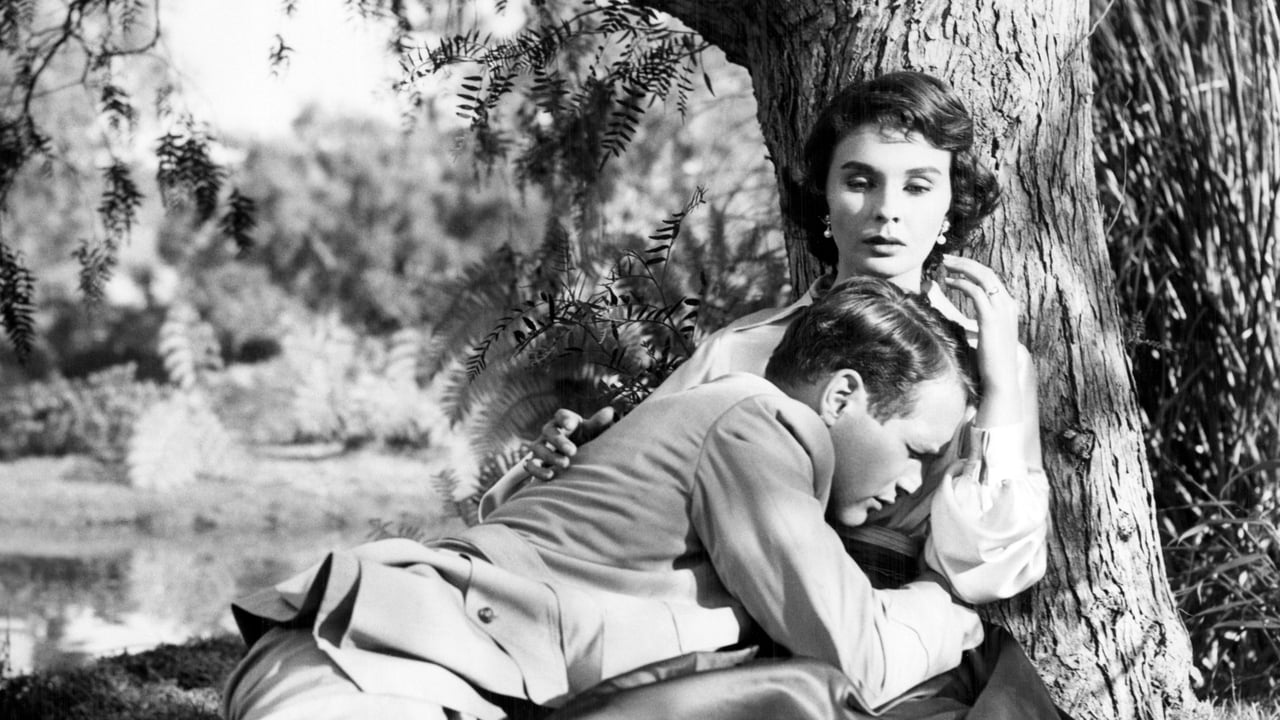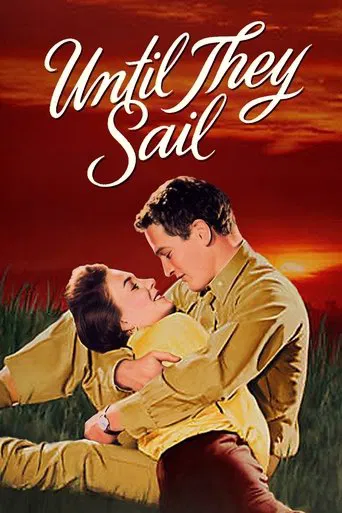

Until They Sail (1957)In some ways this is a terrific movie about women at home as their soldier men fought in World War II. The setting is New Zealand, and the women are four sisters there. The men are mostly American soldiers, seen not as invaders but still as aliens who are not quite welcome, The filming in wide screen (Cinemascope, really wide) black and white is fabulous. And the acting, including key roles by Paul Newman and Jean Simmons, is great.The movie is patient, which is not quite the same as slow, though I think a lot of people will find there are too many pauses and lulls. Instead it feels immersive and dramatic. But what gets in the way a little is more elusive—pertinence. The problem it portrays is over a decade old, so it has lost the really hammerhead wham it would have had in 1946. Yes, the heartstrings are pulled no matter what—it's an eternal and cinematic problem, love and loss—but it's now a separated kind of drama on its own terms.Oddly, the way it was filmed, with old school gorgeousness in black and white, might have kept it in a nostalgic zone as well. Lucky for us, this is what makes it have a classic feel. It sneaks up on you. It avoids hyperbole. It's really fine!And it sheds important light on another aspect of WWII that fits in nicely with the battle films and the other films on the home front, like "The Best Years of our Lives" and other melodramas. There isn't a stick of actual fighting here, if you want that kind of movie. Instead it's an interwoven tale of women trying to survive lost husbands in the war, and finding love, or not, in the mixed up world of war time New Zealand.
... View MoreA solid cast including Paul Newman and Jean Simmons directed by Robert Wise in a screenplay by Robert Anderson (Tea and Sympathy) directed by Robert Wise! Sounds like movie heaven, but not quite. Still, a superior chick flick with a terrific performance by Piper Laurie that all but steals the show. She plays a New Zealand woman in 1945 who can't say no. Her sisters include Joan Fontaine, Sandra Dee (young enough to be Fontaine's daughter), and Simmons. Newman is Simmons's vis-a-vis and he's charismatic as can be. Even Sandra Dee, usually the personification of Styrofoam, is somewhat appealing. Wise directs beautifully, and the black and white cinematography is excellent. It's worth catching--if you can, because it's not on DVD yet as far as I know.
... View MoreThis is not the most spectacular "women in war" movie ever made, but Robert Wise didn't disappoint either.The focus of this film is on Jean Simmons, which was a little disappointing for me because I watched it for Joan Fontaine. Her screen time is pretty much focused into a 20 minutes sequence showing Anne falling in love in Dick (Richard Bates), him shipping off to Tawara, ending with the despair on her face when Paul Newman told her that causality list is still top-secret. To top it off, the script annoyingly turned Anne's tragedy into a happy ending - having Anne receiving telegram and a large sum of money from her mother-in-law, a congressman writing to the Marines demanding that she be sent back as royalties. The audience is led to believe that Dick was from a good, wealthy family and Anne and her little boy will live happily ever after. If you want to see a more realistic look on how the foreign war brides adjust to their American life without their husbands, I recommend Oliver Stone's "Heaven and Earth".The best developed story line is of course the relationship between Paul Newman's Jack and Jean Simmons's Barbara. It's a gentle but thoughtful criticism of the war marriages of 1940's, which Hollywood was beginning to examine during the 50's. And the film took its time bring them together, which makes the feelings Jack and Barbara have for each other more believable than that of Anne and Dick's. Again, I would have liked it better if they didn't end up together. But then, these four girls have been through so much.....and it never hurts to look into those blue eyes of Mr. Newman's as he says "I don't love you" (yeah right!)
... View MoreHaving spent six years living in New Zealand I was especially gratified to see some of my old haunts and gorgeous scenery up there on the screen. When I was there 1986-1992 the people were still very upset about the goings-on between their native daughters and the visiting Americans despite 40 years having gone by. I was struck, in reading the reviews, both external and internal, by the insufferable condescension shown by the reviewers toward the finely nuanced shades of human emotion they had just been privileged to witness as created by author James Michener and director Robert Wise. Some of these people wouldn't know an authentic emotion if it shouted "Boo" at them. The clichéd use of the terms "women's movie" and "soap opera" ought to be finally banned from any attempt at serious criticism. Such marvelous performances by all concerned (both English and American) are to be treasured and appreciated rather than sneered at from some vantage point of aesthetic superiority on high. The emotional melting of the uptight moralistic Joan Fontaine and the pained, cynical Paul Newman are both heartbreakingly beautiful moments in this film. And the cottage pre-departure embrace between Newman and Peters reminded me of the similar moment on the beach between Lancaster and Kerr in From Here to Eternity of four years before. I think Until They Sail is one of the most wonderful movies I've ever seen.
... View More